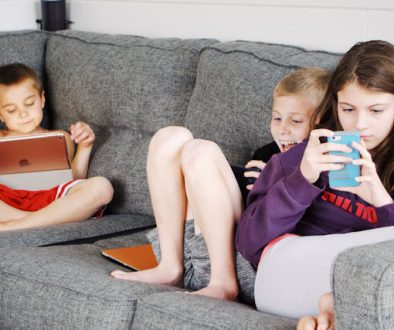The Busy Parent’s Guide to Managing Screen Time for the Whole Family
In today’s fast-paced world, striking the right balance between screen time and real-world connections can feel like navigating an unmarked path. The average family home is a delicate ecosystem, often dominated by the glow of screens—from smartphones to tablets and laptops. The challenge: how do we ensure these digital connections bolster rather than hinder our human ones?
Finding this balance is not just essential for individual well-being but crucial for family harmony. Just as a ship requires a compass to traverse the high seas, parents need a strategy to guide their families through the digital landscape. Steve Jobs, a visionary in technology, famously limited his children’s use of technology at home, aware of both its power and potential pitfalls. His approach underscores a simple truth: moderation can unlock the power of technology without letting it take over.
Consider the story of modern-day families who have taken up digital detox weekends. These families choose to unplug from all electronic screens for two full days, right from Friday evening until late Sunday. Initially, this idea might sound daunting, reminiscent of asking a fish to navigate without water. But what families find is a profound reconnection. As day progresses, engaging conversations replace the constant tap of keys and swipe of fingers.
What can be learned from these digital detox families? It’s a testament to the importance of setting boundaries and creating a structured environment where screens don’t dictate family life, but fit into a balanced routine that allows for shared experiences and growth. Setting family screen time rules—like no devices at the dinner table or a set ‘media hour’—can bring about a collective relief, giving everyone the time and space to connect wholeheartedly.
But why is managing screen time so imperative? Psychological theories suggest that too much screen time can affect children’s development, altering their attention spans and reducing their ability to engage meaningfully with their surroundings. Author Malcolm Gladwell, in his book “Outliers”, highlights the need for focused practice—a concept which holds strong across all ages. When kids practice conversing and engaging without the interruption of screens, they are in fact cultivating essential life skills that tip the balance towards future success.
Statistics back these observations. Research shows that children aged 8 to 18 spend an average of 7.5 hours a day in front of a screen for entertainment. This does not include time at school or for homework. It is essential for parents to break this cycle to foster healthier relationships within the family unit.
Here are actionable steps to take charge of screen time in a household. Firstly, lead by example. If parents show a keen interest in engaging offline activities, children are more likely to follow. Embrace outdoor activities like hiking or cycling, which not only promote physical health but also nurture mental well-being—an aspect well-documented in studies linking exercise to improved mood and reduced anxiety.
Bring back the family game night. J.K. Rowling is renowned for her story woven around the magic of human connection—a concept that translates well into family time. Board games and puzzles create opportunities for bonding, much like Rowling’s narrative threads connecting readers to a tapestry of characters and tales.
Open a book club within the family, choosing literature that can spark discussions long after the last page is turned. This activity not only minimizes screen time but nurtures emotional intelligence through shared narratives. Classic tales from authors like E.B. White allow children and adults alike to delve into worlds where imagination knows no bounds.
Also, encourage children to engage in creative tasks—painting, writing, building. Studies show that creative engagement not only reduces stress but enhances cognitive abilities. Pablo Picasso, a man dedicated to a life of creativity, once said, “Every child is an artist. The problem is how to remain an artist once we grow up.” Foster your child’s inner artist and witness the transformation as their potential unfolds.
In conclusion, managing screen time is a practice rooted in awareness and moderation. By creating routines that emphasize real-world connections, you lay the foundation for a balanced family life. It is indeed achievable to be among the top families achieving harmony in this digital age, where moments together are cherished and memories crafted without the constant interruption of screens.



